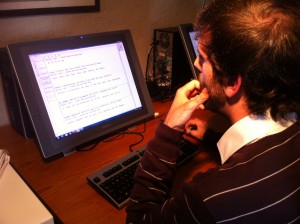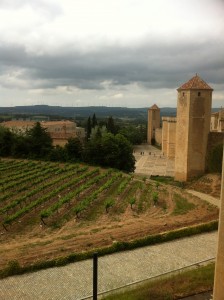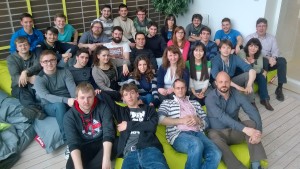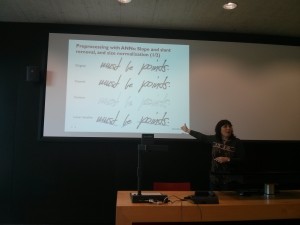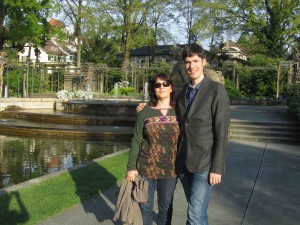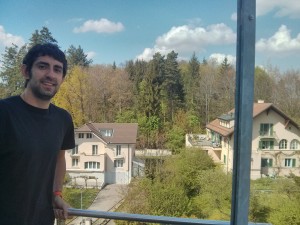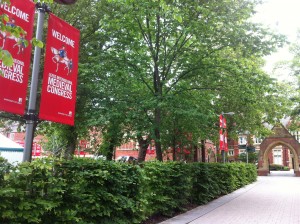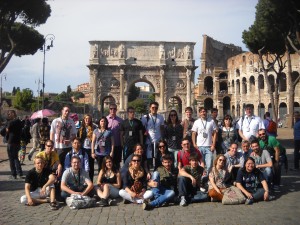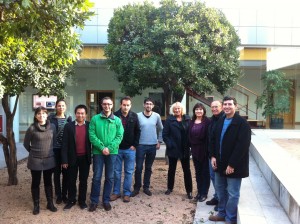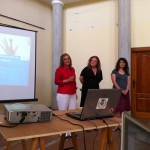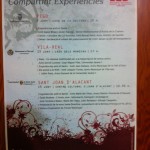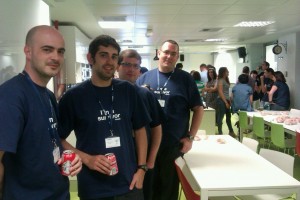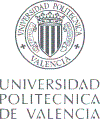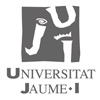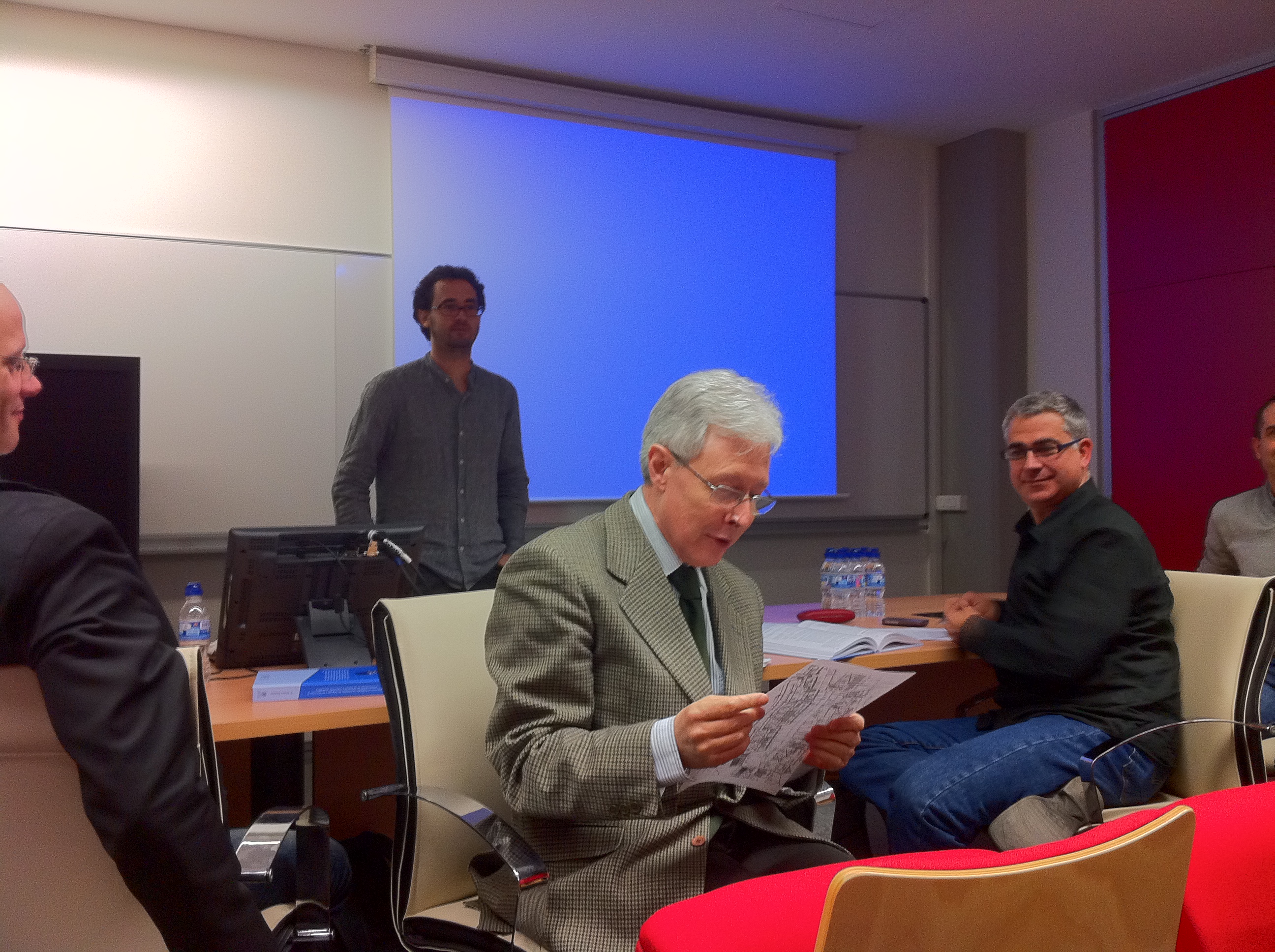 A new PhD in our team! Renato de Mori, president of the tribunal of the doctoral thesis defense, is congratulating the new PhD.
A new PhD in our team! Renato de Mori, president of the tribunal of the doctoral thesis defense, is congratulating the new PhD.
Francisco Zamora Martínez has developed his research in the application of artificial neural networks for language modeling. His research work has been applied to three areas in information technology: speech understanding, handwriting recognition and machine translation. Multiple applications for personal computers, tablets, smartphones and video games use these systems. The use of artificial neural networks can improve the effectiveness of these applications, increasingly used.
But these connectionist language models still pose some problems, mainly computational issues, and his research has been focused on proposing techniques that can drastically reduce the computational cost of these models, without degrading the quality of the solution found. It also examines the effect of the integration of connectionist models of language in the search process of the proposed tasks, as well as modifications of the original model to improve its quality.
The thesis of Francisco Zamora is available for download in RIUNET. His presentation material can be found in this blog.

